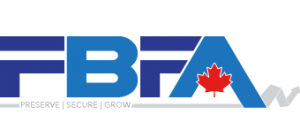Use estate planning to maximize your legacy

Through estate planning, you make your wishes clear regarding who gets what, and under what terms, after your death. You can also make financial provisions for yourself and your family should you be incapacitated in an accident or illness.
A Will is not an estate plan and an estate plan is more than a Will. There are many tools that can be used to facilitate the succession of your assets, and these will be influenced by a number of factors, including the people who stand to benefit from your estate, the size and characterization of the assets in question and, perhaps most important, your intentions. An estate plan for individuals who’ve accumulated most of their wealth through a business will likely look quite different than one for those who’ve accumulated most of their wealth through registered and non-registered investment plans. Each of those individuals will have different risks and constraints placed upon the distribution of their estate. Ancillary concerns, such as tax planning, family law issues and – of particular concern for residents of Ontario and British Columbia – probate planning, come into play when an estate – distribution goals are established.
A checklist to help you start this process;
Designate your beneficiaries
Take an inventory of your assets
Research estate planning information
Review your estate plan periodically
Five steps to financial readiness for new parents
You have many memories-in-the-making to look forward to—first birthdays, ballet recitals, family vacations, soccer goals and graduations from kindergarten to college.
It’s expensive to raise and educate children, but as parents we want what’s best for them. Add up everything from daycare and diapers to music lessons, hockey gear and birthday parties, and you’ll be glad you planned ahead. Life happens, and don’t be like a deer caught in the headlights.
As well, unforeseen events can change everything in an instant. When your child is home sick it often means that you or your partner will miss work. Or if you become ill you may need some added support. That’s why contingency plans and easy-to-access emergency funds are so important, as they can protect your family and budget.

‘Tis the season for tax-loss selling
As the year-end approaches, many investors with taxable accounts may be seeking to dispose of securities that have lost money, especially during Sept – Oct. The strategy of tax-loss selling allows the investor to claim a capital loss, which offsets capital gains for the current year. Any unused net capital losses can then be applied against taxable capital gains in any of the three preceding

Six financial planning tips for business owners
Running your own business? You’re in good company. There are one million small businesses coast-to-coast operating with fewer than 100 employees. As a small business owner and entrepreneur, you are already aware of the overwhelming amount of effort it takes to make your business or practice success. From the day to day issues that takes up much of your time, to record keeping procedures, to ensure you are keeping abreast with all minutiae of the business.
Here are six financial tips worth considering for success. Read more

Business Survival & Succession – starts with Protecting Your Key Persons!
When you own a business, it becomes part of your legacy and part of your family. So, I guess it’s not surprising that most business owners have protection plans to secure their family and their enterprise.
In running a successful business, you’re always taking on risks to make your dreams or ideas tangible and transformational. And also the ongoing risks to taking your business or practice to the next pedigree. Failing to foresee and plan for some these intrinsic business risks may be your demise in times of uncertainties. The greatest threat to your long-term success or legacy, I believe is at “You” – Your Ingenuity, Talent, Creativity and Excellent Health and perhaps, those of your employees. Thanks to medical advancements, we are able to survive most catastrophic situations, but the financial toll could bring your dreams crashing, whilst recuperating.

Financial Tips to help you achieve your dreams – TFSA
It’s official. The TFSA dollar limit will be increasing to $6,000 in 2019. TFSAs have been extremely popular among millions of Canadians, many of whom will welcome the upcoming ability to sock away extra funds in their TFSAs come 2019.
The TFSA was first introduced in the 2008 federal budget and became available to Canadians for the 2009 calendar year. The initial TFSA dollar limit of $5,000 had risen to $5,500 for the past few years, with a short-lived flirtation at $10,000 in 2015.
Under the tax rules, starting in 2016 and for each subsequent year, the annual TFSA dollar limit was fixed at $5,000, indexed to inflation for each year after 2009, and rounded to the nearest $500 to make the annual limits easy to remember. Contrast this with the maximum RRSP limit, which is fully indexed to inflation, with no rounding, making this year’s limit of $26,230 a bit harder to recall.


